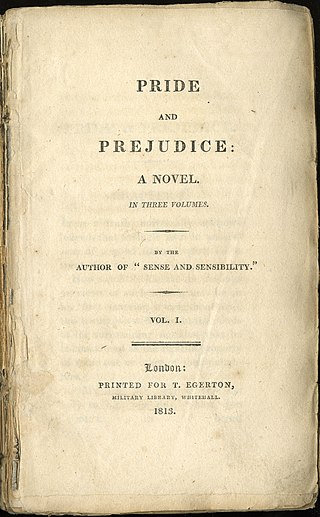
Pride and Prejudice is the second novel by English author Jane Austen, published in 1813. A novel of manners, it follows the character development of Elizabeth Bennet, the protagonist of the book, who learns about the repercussions of hasty judgments and comes to appreciate the difference between superficial goodness and actual goodness.

William Godwin was an English journalist, political philosopher and novelist. He is considered one of the first exponents of utilitarianism and the first modern proponent of anarchism. Godwin is most famous for two books that he published within the space of a year: An Enquiry Concerning Political Justice, an attack on political institutions, and Things as They Are; or, The Adventures of Caleb Williams, an early mystery novel which attacks aristocratic privilege. Based on the success of both, Godwin featured prominently in the radical circles of London in the 1790s. He wrote prolifically in the genres of novels, history and demography throughout his life.
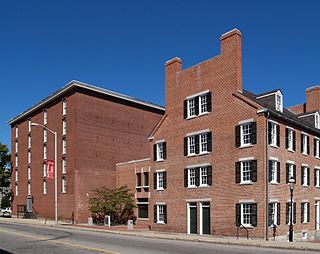
A boarding house is a house in which lodgers rent one or more rooms on a nightly basis, and sometimes for extended periods of weeks, months, and years. The common parts of the house are maintained, and some services, such as laundry and cleaning, may be supplied. They normally provide "room and board," that is, some meals as well as accommodation.
Anne Tyler is an American novelist, short story writer, and literary critic. She has published twenty-four novels, including Dinner at the Homesick Restaurant (1982), The Accidental Tourist (1985), and Breathing Lessons (1988). All three were finalists for the Pulitzer Prize for Fiction, and Breathing Lessons won the prize in 1989. She has also won the Janet Heidinger Kafka Prize, the Ambassador Book Award, and the National Book Critics Circle Award. In 2012 she was awarded The Sunday Times Award for Literary Excellence. Tyler's twentieth novel, A Spool of Blue Thread, was shortlisted for the Man Booker Prize in 2015, and Redhead By the Side of the Road was longlisted for the same award in 2020.

Pride and Prejudice is a six-episode 1995 British television drama, adapted by Andrew Davies from Jane Austen's 1813 novel of the same name. Jennifer Ehle and Colin Firth starred as Elizabeth Bennet and Fitzwilliam Darcy, respectively. Produced by Sue Birtwistle and directed by Simon Langton, the serial was a BBC production with additional funding from the American A&E Network. BBC1 originally broadcast the 55-minute episodes from 24 September to 29 October 1995. The A&E Network aired the series in double episodes on three consecutive nights beginning 14 January 1996.

Bride and Prejudice is a 2004 romantic comedy-drama film directed by Gurinder Chadha. The screenplay by Chadha and Paul Mayeda Berges is a Bollywood-style adaptation of Jane Austen's 1813 novel Pride and Prejudice. Shot primarily in English, with some Hindi and Punjabi dialogue, the film was released in the United Kingdom on 6 October 2004 and in the United States on 11 February 2005 to mostly positive reviews from critics.

Pride & Prejudice: A Latter-Day Comedy is a 2003 independent romantic comedy film directed by Andrew Black and produced by Jason Faller. The screenplay, by Anne Black, Jason Faller, and Katherine Swigert, is an adaptation of Jane Austen's 1813 novel Pride and Prejudice set in modern-day Provo, Utah. The film stars Kam Heskin as college student Elizabeth Bennet whose dreams of becoming an author supersede the cultural and societal pressures to be married. Elizabeth tries to escape the advances of several bachelors, including handsome but haughty businessman Will Darcy.
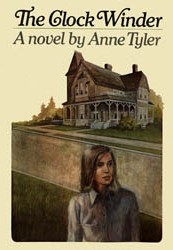
The Clock Winder is a 1972 novel by Anne Tyler.
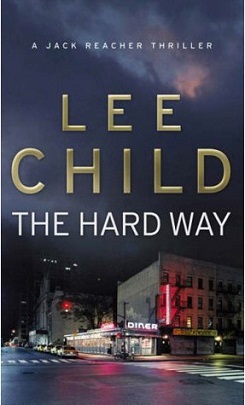
The Hard Way is a novel by Lee Child, first published in 2006.
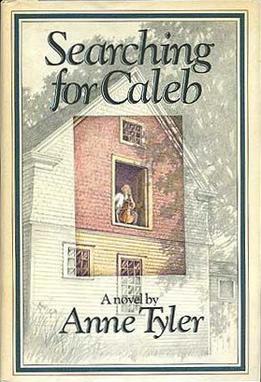
Searching for Caleb is Anne Tyler's sixth novel. It was originally published by Alfred A. Knopf in 1975.

Maria: or, The Wrongs of Woman is Mary Wollstonecraft's unfinished novelistic sequel to her revolutionary political treatise A Vindication of the Rights of Woman (1792). The Wrongs of Woman was published posthumously in 1798 by her husband, William Godwin, and is often considered her most radical feminist work.

Frankenstein; or, The Modern Prometheus is an 1818 novel written by English author Mary Shelley. Frankenstein tells the story of Victor Frankenstein, a young scientist who creates a sapient creature in an unorthodox scientific experiment. Shelley started writing the story when she was 18, and the first edition was published anonymously in London on 1 January 1818, when she was 20. Her name first appeared in the second edition, which was published in Paris in 1821.

Percy Bysshe Shelley was a British writer who is considered one of the major English Romantic poets. A radical in his poetry as well as in his political and social views, Shelley did not achieve fame during his lifetime, but recognition of his achievements in poetry grew steadily following his death, and he became an important influence on subsequent generations of poets, including Robert Browning, Algernon Charles Swinburne, Thomas Hardy, and W. B. Yeats. American literary critic Harold Bloom describes him as "a superb craftsman, a lyric poet without rival, and surely one of the most advanced sceptical intellects ever to write a poem."

Mary Wollstonecraft Shelley was an English novelist who is best known for writing the Gothic novel Frankenstein; or, The Modern Prometheus (1818), which is considered an early example of science fiction. She also edited and promoted the works of her husband, the Romantic poet and philosopher Percy Bysshe Shelley. Her father was the political philosopher William Godwin and her mother was the philosopher and women's rights advocate Mary Wollstonecraft.

Earthly Possessions is a 1977 novel by Anne Tyler. This, Tyler's seventh novel, followed Celestial Navigation and Searching for Caleb and preceded her award-winning novels Morgan's Passing, Dinner at the Homesick Restaurant, The Accidental Tourist, and Breathing Lessons.
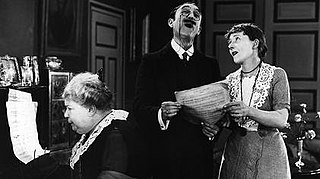
Not for Sale is a 1924 British silent comedy film directed by W. P. Kellino and starring Mary Odette, Ian Hunter and Gladys Hamer. It was made at Cricklewood Studios by Stoll Pictures, and based on a novel by Monica Ewer. The film's sets were designed by the art director Walter Murton. It is still extant, unlike many silent films of the era which are now considered lost.

The Wild Man of Borneo is a 1941 American comedy film directed by Robert B. Sinclair and written by Waldo Salt and John McClain, based on the 1927 Broadway play by Marc Connelly and Herman J. Mankiewicz. The film stars Frank Morgan and features Mary Howard, Billie Burke, Donald Meek, Marjorie Main, Connie Gilchrist, Bonita Granville and Dan Dailey. The film was released on January 24, 1941 by Metro-Goldwyn-Mayer.

Since the initial publication of Mary Wollstonecraft Shelley's novel Frankenstein; or, The Modern Prometheus in 1818, there has existed uncertainty about the extent to which Mary Shelley's husband, Percy Bysshe Shelley, contributed to the text. While the novel was conceived and mainly written by Mary, Percy is known to have provided input in editing and publishing the manuscript. Some critics have alleged that Percy had a greater role—even the majority role—in the creation of the novel, though mainstream scholars have generally dismissed these claims as exaggerated or unsubstantiated. Based on a transcription of the original manuscript, it is currently believed that Percy contributed between 4,000 and 5,000 words to the 72,000 word novel.

















